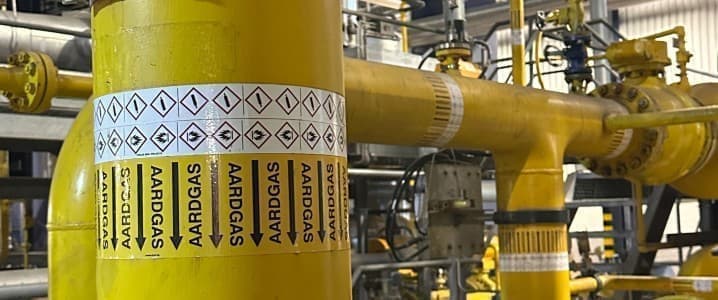Germany’s ruling coalition has slashed in half the capacity of new natural gas-fired power plants it aims to tender by 2032 in a significant scale-down from the previously planned 20 GW of new gas capacity.
The governing coalition led by conservative Chancellor Friedrich Merz has reached a compromise on the energy policy as Europe’s biggest economy looks to balance energy security with its decarbonization goals.
The government now will tender 10 GW of new gas-fired capacity by 2032, to serve as flexible backup to wind and solar energy as Germany also looks to phase out coal-fired power capacity by 2030.
Germany has decided that it would tender 10 GW of new natural gas-fired capacity from power plants that could be converted to hydrogen in the 2030s, as part of plans to ensure stable electricity supply as wind and solar power generation and installations grow.
“The tenders will specify that the new power stations are technically capable of being fired by hydrogen,” Chancellor Merz said, as carried by Reuters.
Germany, which in 2023 closed all its remaining nuclear power plants – is now seeking to balance the generation and transmission systems with new gas power plants.
The reduction of new gas-fired capacity to be tendered is a win for the coalition partners who are seeking a faster rollout of renewable electricity.
Germany saw the highest number of onshore wind turbines commissioned in the first half of 2025 for eight years, but the rebound in installations is still off track to reach the official targets, the German wind energy association, Bundesverband WindEnergie (BWE), said earlier this year.
Despite the jump in wind power installations, Germany still has a gap between the rate of capacity expansion and the legally mandated goals in the Renewable Energy Sources Act, the so-called EEG, BWE president Bärbel Heidebroek said.
Germany has a target to install 10 GW of wind power capacity every year to have renewables account for 80% of its electricity generation in 2030.
By Charles Kennedy for Oilprice.com
More Top Reads From Oilprice.com

